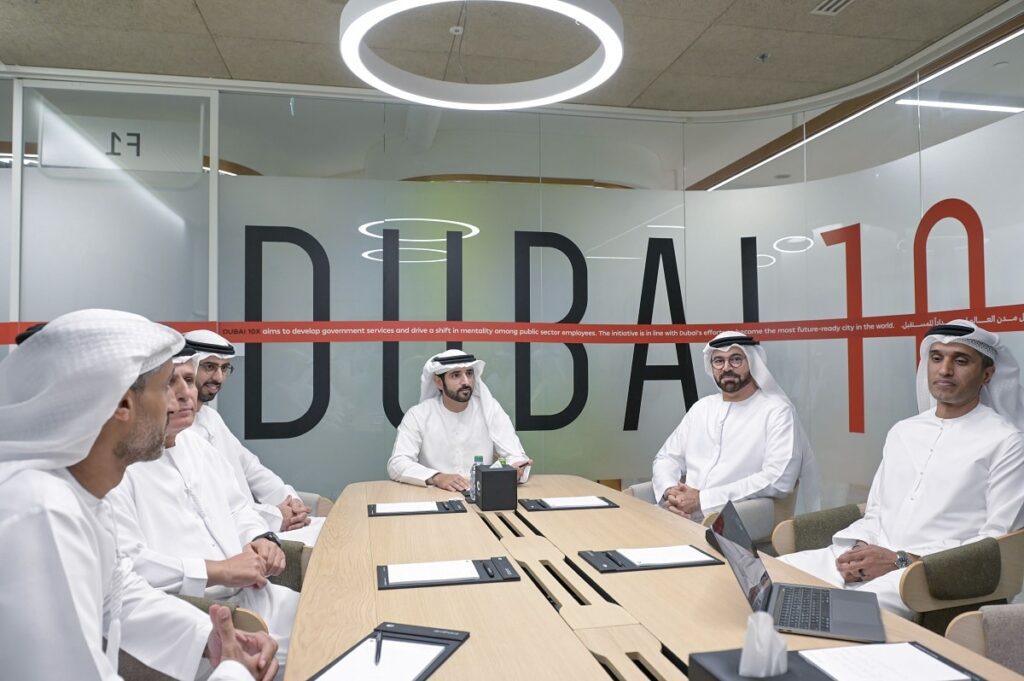Sheikh Hamdan bin Mohammed bin Rashid Al Maktoum, the Crown Prince of Dubai and Chairman of the Board of Trustees of the Dubai Future Foundation has given his approval to a range of new projects within the framework of the Dubai 10X initiative.
These projects encompass various crucial sectors, such as transportation, aviation, urban planning, and healthcare.
The approvals for these projects mark a significant milestone in the third phase of the Dubai Future Foundation’s Dubai 10X initiative, with the objective of positioning the emirate as a leader in ‘future readiness.’
Phase Three: Shifting Government Mindsets
According to the Dubai Media Office, the third phase of this initiative is primarily focused on proactively instigating a fundamental change in the mindset of government sector employees to work towards achieving this objective.
Sheikh Hamdan said: “Our objective is to ensure that the results of these projects distinctly elevate the quality of life for both Dubai’s residents and visitors, by not only enhancing their wellbeing, but also prioritising their health and overall living standards.”
“These new projects are poised to streamline and expedite transportation within Dubai, enhance the travel experience at Dubai’s airports, and establish a robust healthcare system for early disease detection.”
The Crown Prince instructed various departments within the Dubai government to execute these projects, harnessing the diverse range of expertise available throughout all government entities.
Driving Dubai 10X Objectives
This directive is geared towards achieving the objectives of the Dubai 10X initiative, which prioritizes fostering cooperation among government entities to expedite progress and create innovative models that can be beneficial to cities in the region and around the world.
Regarding the Dubai 10X initiative’s project selection and evaluation process, the chosen projects were picked from a pool of 79 project ideas, collaboratively developed by over 120 government employees from 33 different Dubai government entities.
This selection process involved the exchange of knowledge and best practices among government departments, with over 25 workshops convening various government teams to discuss and refine these ideas. Some of the projects required the cooperation of up to 11 government entities.
The project ideas encompassed diverse aspects of future government services, spanning transportation, aviation, space, energy, sustainability, infrastructure, trade, finance, health, security, civil defense, and community services, among others.
These projects underwent a comprehensive evaluation process that considered factors such as expected future outcomes, implementation timelines, potential integration with other government services, their impact across the emirate, and the enhancement of the community’s quality of life.


